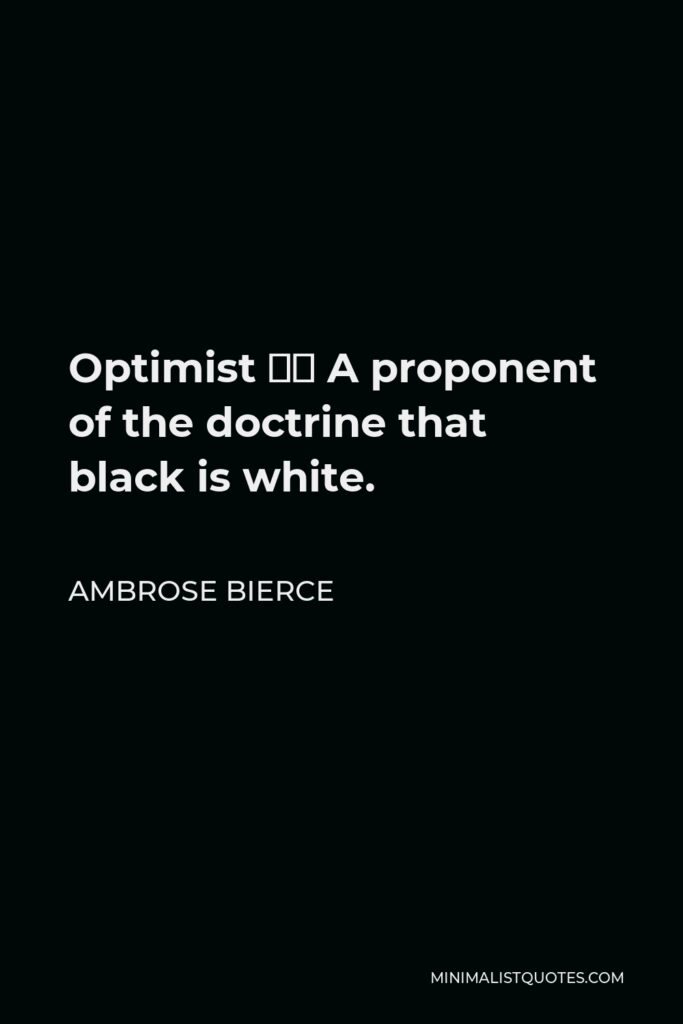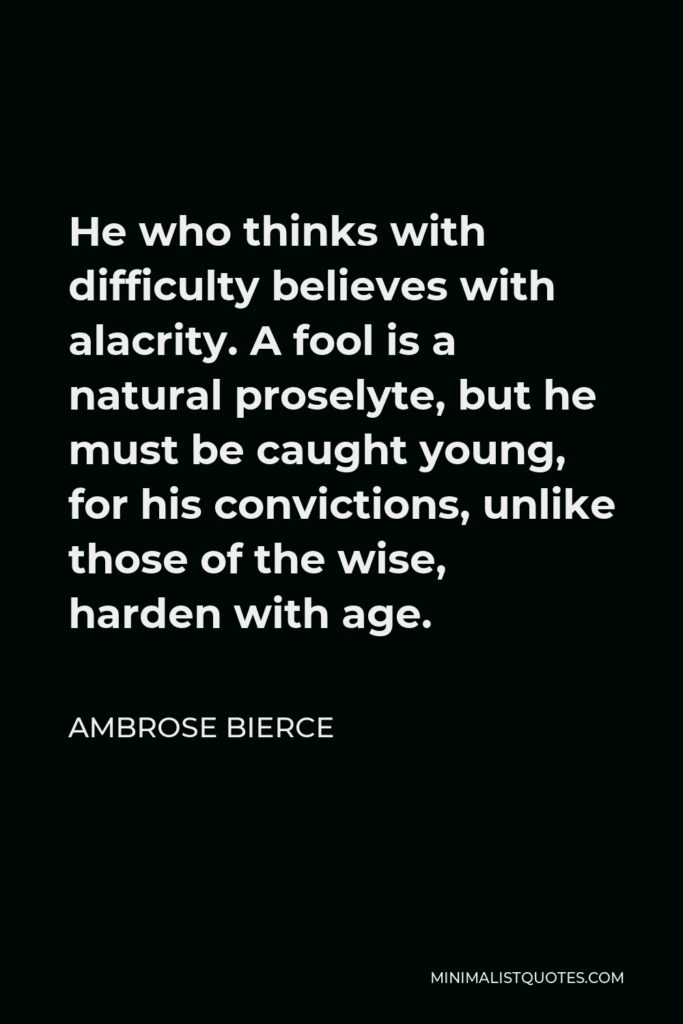Optimist – A proponent of the doctrine that black is white.
AMBROSE BIERCELaughter, n. An interior convulsion, producing a distortion of the features and accompanied by inarticulate noises. It is infectious and, though intermittent, incurable.
More Ambrose Bierce Quotes
-







-







ULTIMATUM, n. In diplomacy, a last demand before resorting to concessions.
AMBROSE BIERCE -







Forgetfulness – a gift of God bestowed upon debtors in compensation for their destitution of conscience.
AMBROSE BIERCE -







Distance, n. The only thing that the rich are willing for the poor to call theirs and keep.
AMBROSE BIERCE -







True, man does not know woman. But neither does woman.
AMBROSE BIERCE -







The partisan strife in which the people of the country are permitted to periodically engage does not tend to the development of ugly traits of character, but merely discloses those that preexist.
AMBROSE BIERCE -







Selfish, adj. Devoid of consideration for the selfishness of others.
AMBROSE BIERCE -







Life – a spiritual pickle preserving the body from decay.
AMBROSE BIERCE -







Saint: A dead sinner revised and edited.
AMBROSE BIERCE -







Democracy is four wolves and a lamb voting on what to have for lunch.
AMBROSE BIERCE -







He who thinks with difficulty believes with alacrity.
AMBROSE BIERCE -







Christian, n.: one who believes that the New Testament is a divinely inspired book admirably suited to the spiritual needs of his neighbor.
AMBROSE BIERCE -







War is God’s way of teaching Americans geography.
AMBROSE BIERCE -







MIND, n. A mysterious form of matter secreted by the brain. Its chief activity consists in the endeavour to ascertain its own nature, the futility of the attempt being due to the fact that it has nothing but itself to know itself with.
AMBROSE BIERCE -







Eloquence, n. The art of orally persuading fools that white is the color that it appears to be. It includes the gift of making any color appear white.
AMBROSE BIERCE -







Conservative, n: A statesman who is enamored of existing evils, as distinguished from the Liberal who wishes to replace them with others.
AMBROSE BIERCE








